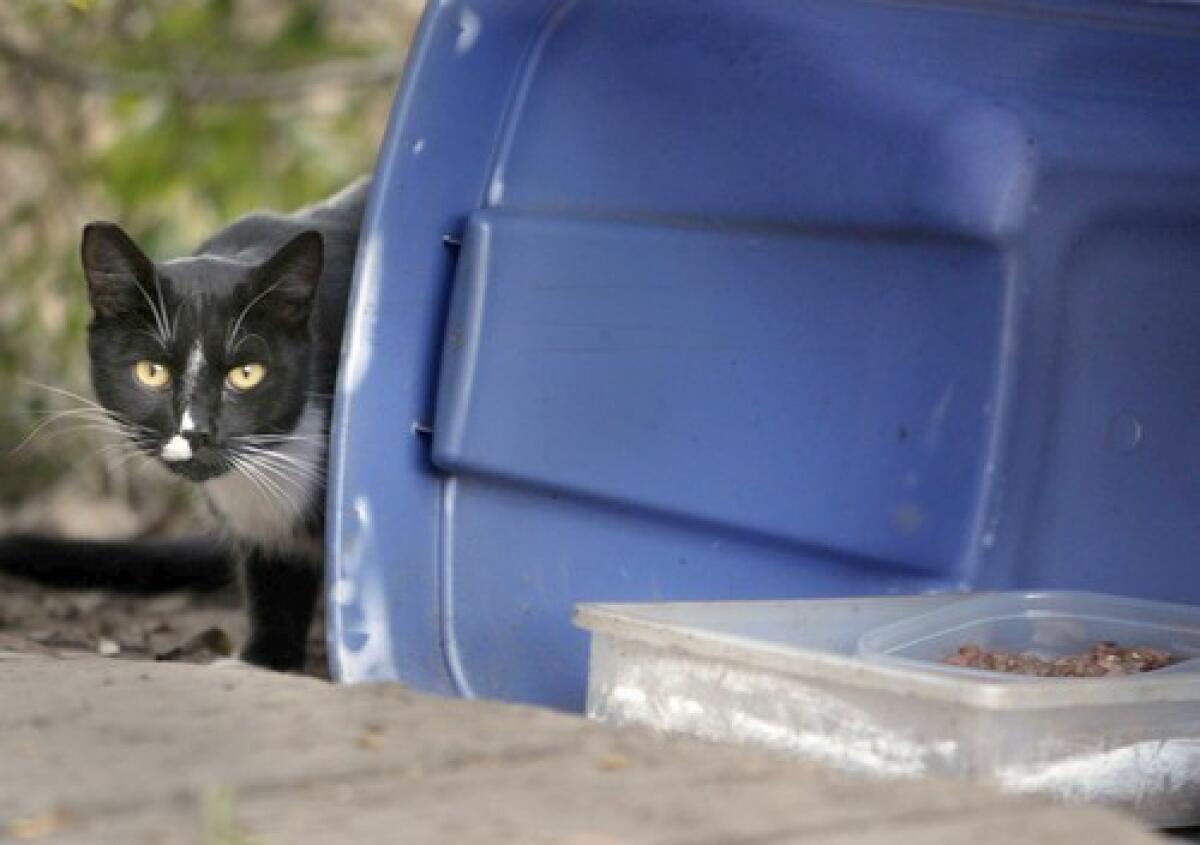Letters to the Editor: Sterilizing L.A.’s feral cats isn’t enough. Humans have to manage their colonies

To the editor: Thank you for your balanced editorial on managing Los Angeles’ feral cat colonies. I have been working with the successful trap-neuter-return program (TNR) at Cal State Long Beach since 2007, and the number of cats I care for has declined from more than 100 to just two.
This was accomplished by adding an “M” to TNR. Our dedicated group of volunteers also managed the colony. We worked with the university administration to set up designated feeding areas, provided daily food and water, provided veterinary care to sick or injured animals, and found homes for tame cats.
As the number of cats declined, the number of wild animals increased. Now there are more raccoons, possums, skunks, squirrels and, yes, rats, thus providing adequate food for the coyotes that roam the campus too.
One might have expected an increase in the number of birds, but this has not happened, possibly due to the severe pruning of many trees and the removal of others in favor of new buildings.
Dorothy Burstein, Los Alamitos
..
To the editor: It is a pity that the Los Angeles Department of Animal Services has failed to proactively educate the public about the importance of spay and neuter, or to enforce the city’s decades-old control laws. Instead, the city has focused primarily on promoting adoption, treating one symptom of the problem, not pet overpopulation itself.
TNR, as originally developed, calls for managed colonies overseen by caretakers in locations where the cats are accepted and safe. These days, it is rife with problems: Where it lacks proper management, it has morphed into the dumping of marginally socialized and friendly cats into inhospitable locations.
Los Angeles must include registered caretakers who feed and watch over truly feral cats, endeavor to thoroughly sterilize colonies, and provide timely reports about the animals’ welfare. It must also get a handle on the cats’ exponential birthrates by providing more low-cost sterilization venues and enforcing its spay/neuter laws.
Wendy Aragon, Long Beach
The writer is president of the Pet Assistance Foundation.
More to Read
A cure for the common opinion
Get thought-provoking perspectives with our weekly newsletter.
You may occasionally receive promotional content from the Los Angeles Times.










